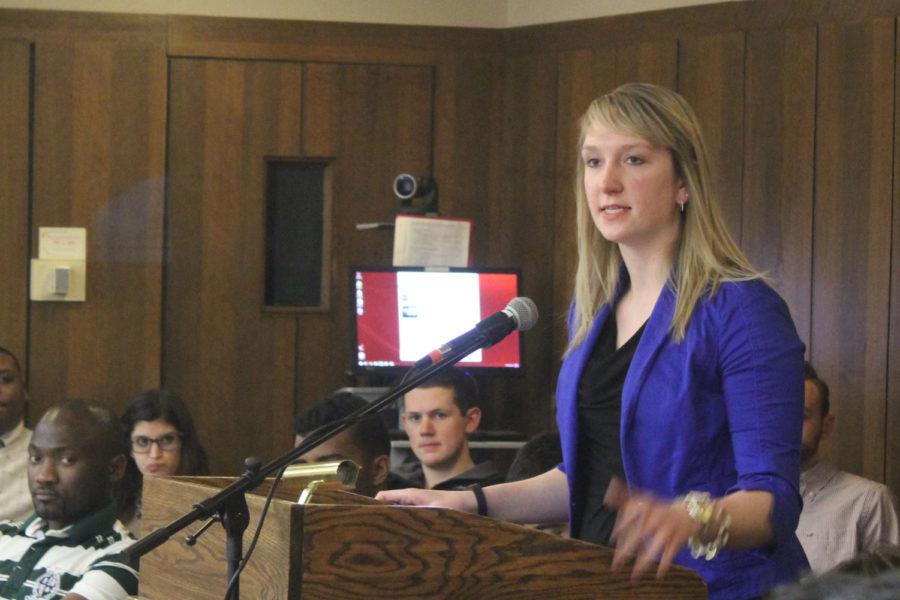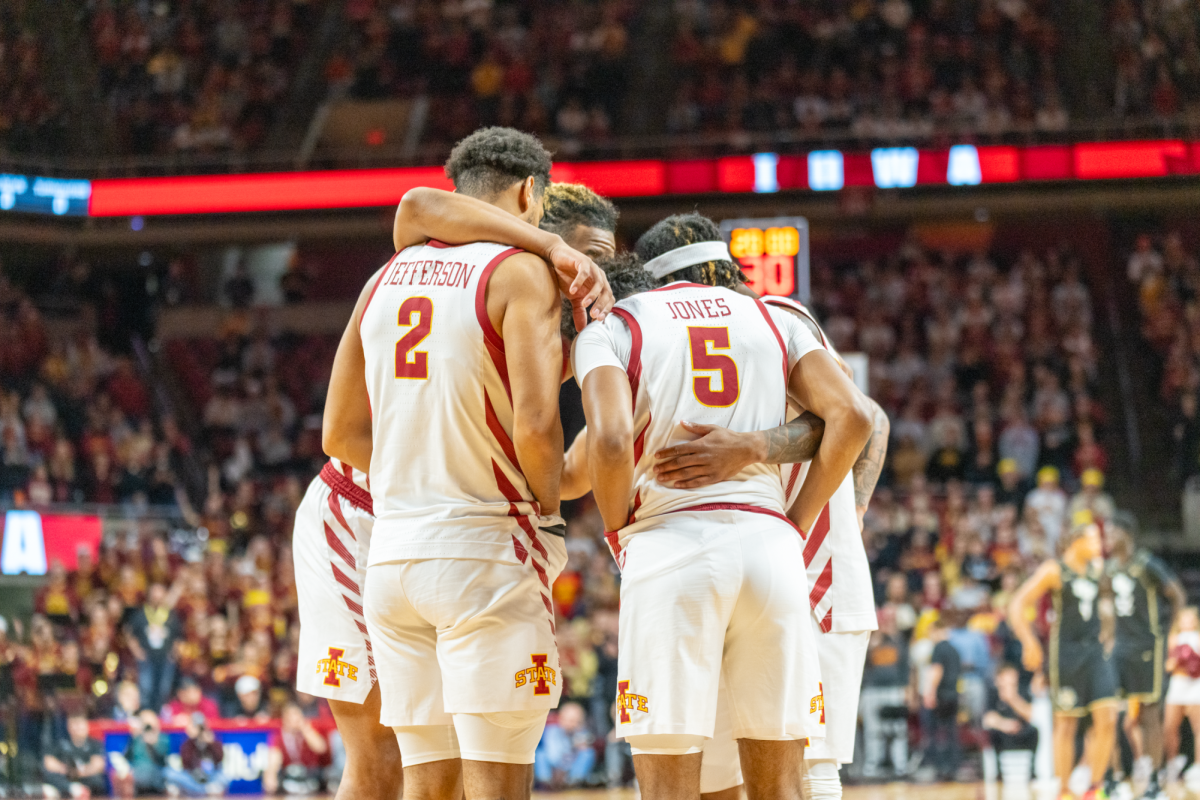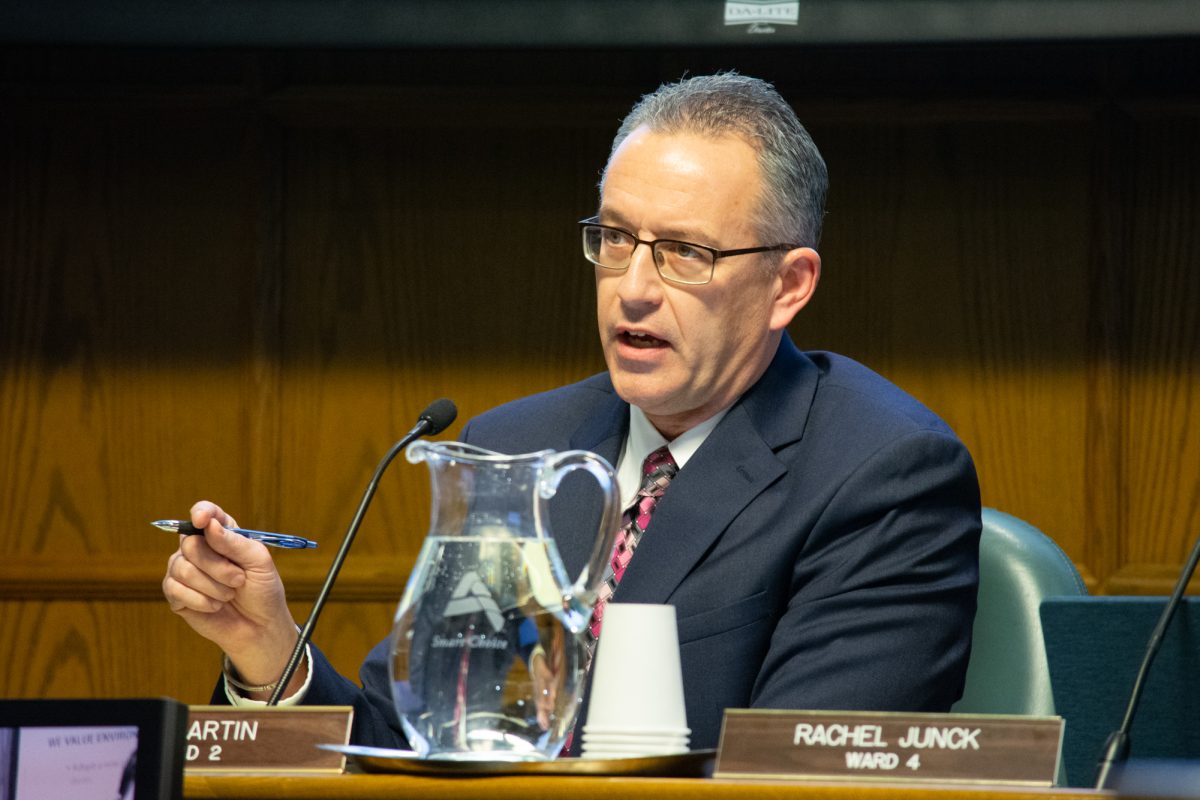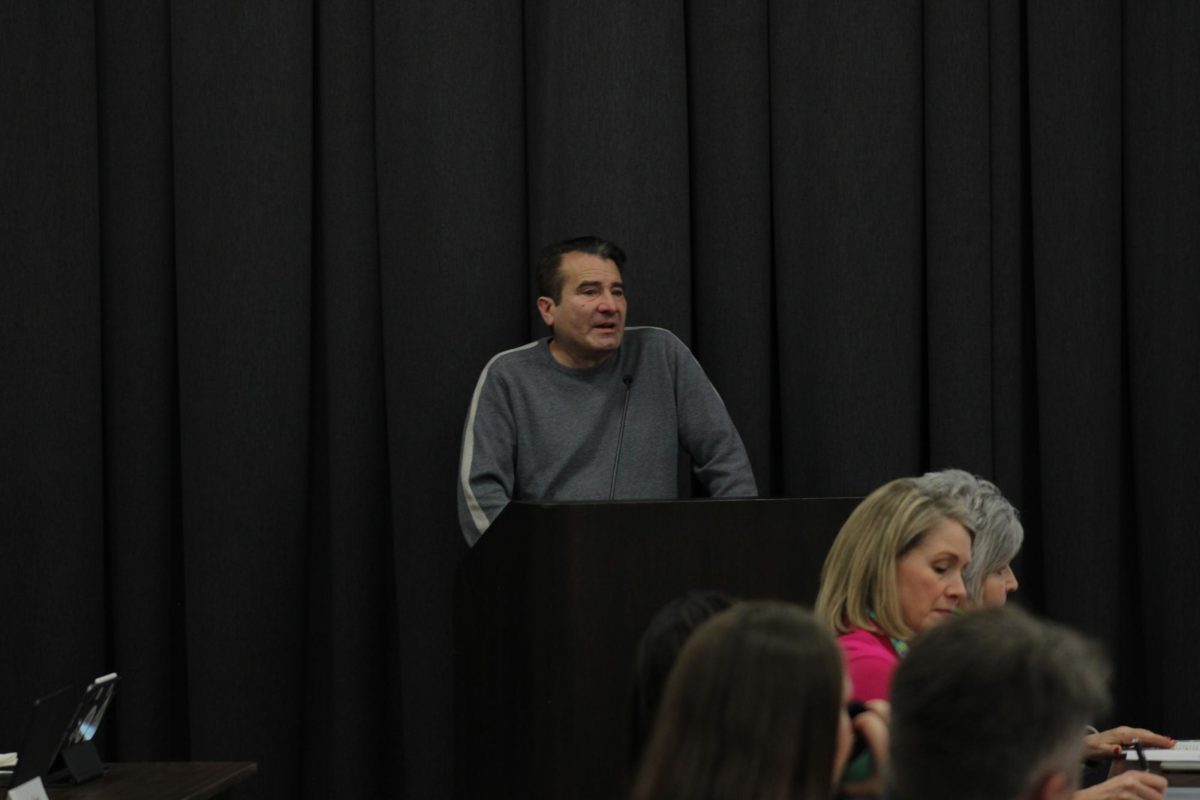GSB campaign spending sparks controversy
Jonathan North/Iowa State Daily
GSB President Hillary Kletscher gives her State of the Student Body address. Kletscher outlined her goals for the next semester and updated the Senate on improvements made over the previous semester, while reiterating the GSB’s mission statement to serve the student body.
February 2, 2015
Government of the Student Body members prepare for elections after the former election commissioner questioned whether or not GSB President Hillary Kletscher campaigned illegally during last year’s campaign season.
Adam Guenther, the election commissioner for last year’s elections, brought one of Kletscher’s comments about the possibility of buying students’ votes in last year’s election to the GSB Supreme Court’s attention, asking the court to look into the issue. Though the Supreme Court decided not to hear the case, Guenther said he wanted to bring the comment to light to be sure Kletscher’s presidency wasn’t founded on votes that were bought.
During the last GSB Senate meeting of the fall semester, the senate voted to not have caps on election campaigning, so candidates could spend however much they wanted on campaigns and not have to stick to the previous cap of $1,250. Kletscher vetoed the bill soon after it was passed.
During the Jan. 14 GSB meeting, the senate tried to override Kletscher’s veto, but ultimately failed. Kletscher argued that not having a spending cap would allow students to overspend, which could lead to campaigning discrepancies.
“I bought some votes last year. I did,” Kletscher said during the Jan. 14 meeting. “I had people tell me, ‘oh, you bought me candy. You gave me hot chocolate.’ I personally could have spent more than the spending limits on my campaign. But because it was there, it allowed me to make smarter financial decisions and do what was best for the Government of the Student Body.”
Kletscher said just the fact that the small perks like candy and hot chocolate had some monetary value to get students’ attention and start a conversation could have meant that money influenced students to vote for her. She was arguing to have caps because if candidates were able to spend a lot of money, it would not only be financially detrimental, but candidates could spend money in extravagant ways that would influence students to vote for them.
“I really tried to think about innovative and new ways to start a conversation with students. Some of those ways did include having hot chocolate on campus on a freezing day and giving candy by some of the dining areas on campus,” Kletscher said. “It’s the same thing if you think of student organizations that have free pizza the first month of every year. Everyone loves something free, especially in college because we all have those tight budgets.”
Though Kletscher did not exceed the $1250 cap, she said she spent right up to the limit and used similar campaigning techniques during the two years she campaigned for executive positions.
“At the end of the day, I want any student who’s attending Iowa State to be able to run. I want every student to feel like they can do that and not have to take out more student loans to keep up with what maybe their peers are doing to campaign. The spending cap is really important for that,” Kletscher said.
She said talking to student organizations about her campaign platform was the biggest reason she was elected.
“It’s been really great that I’ve been able to go back to some of the larger student [organizations] this year and say, ‘hey, remember that parking thing we talked about? We did that. We opened 95 spots. Remember talking about raising tutor wages? That happened,’” Kletscher said.
However, Guenther said Kletscher’s comments were out of line for a GSB president, who is supposed to represent students. While the Supreme Court decided to throw out Guenther’s case, he said Kletscher’s comments made him question the legitimacy of her entire presidency.
“I think she said it pretty cavalierly. Whether it be one-cent candies you pick up at the dollar store or $100 you pass out outright, that food has monetary value. In any other case, you don’t have Steve King passing out candy,” Guenther said. “It’s stressful for people running for presidency, but considering the levity of their position and the reimbursement the student government gives them, I feel like it’s a justified cause [to sue].”
During his time as Election Commissioner last year, Guenther said he heard of no campaigning violations, but that may just be because he didn’t catch them.
Guenther’s biggest concern, he said, was that the integrity of the GSB would be compromised through corrupt campaign spending and donations from parties that could influence the president. Though all donations count toward the $1250 cap, he was concerned because the GSB president receives full tuition with their position and has access to the administration and the Board of Regents.
“With the position being a very visible part on campus, that doesn’t mean you should stoop down to a level that is beneath the office or beneath the respect or the trust of the students. That’s not the type of people we want representing us to the administration or speaking for us to the Regents,” Guenther said.
Guenther agreed with Kletscher on the need to have spending limits.
“$1250 is a lot. If I had that much money, I wouldn’t spend it on the election anyway. I would say we don’t want to have it be that money is the limiting factor in students running,” Guenther said.
While both were in favor of spending caps, Kletscher said she does think candidates should be allowed to spend some money on elections.
“They need to spend some money on their campaign to be innovative and try different things. Everything takes money,” Kletscher said. “There’s just a lot of factors that play into who’s ultimately elected. I think a lot of that is network. I’d certainly be very impressed if someone was able to get elected without spending a dime, but at the same time anything’s possible.”






